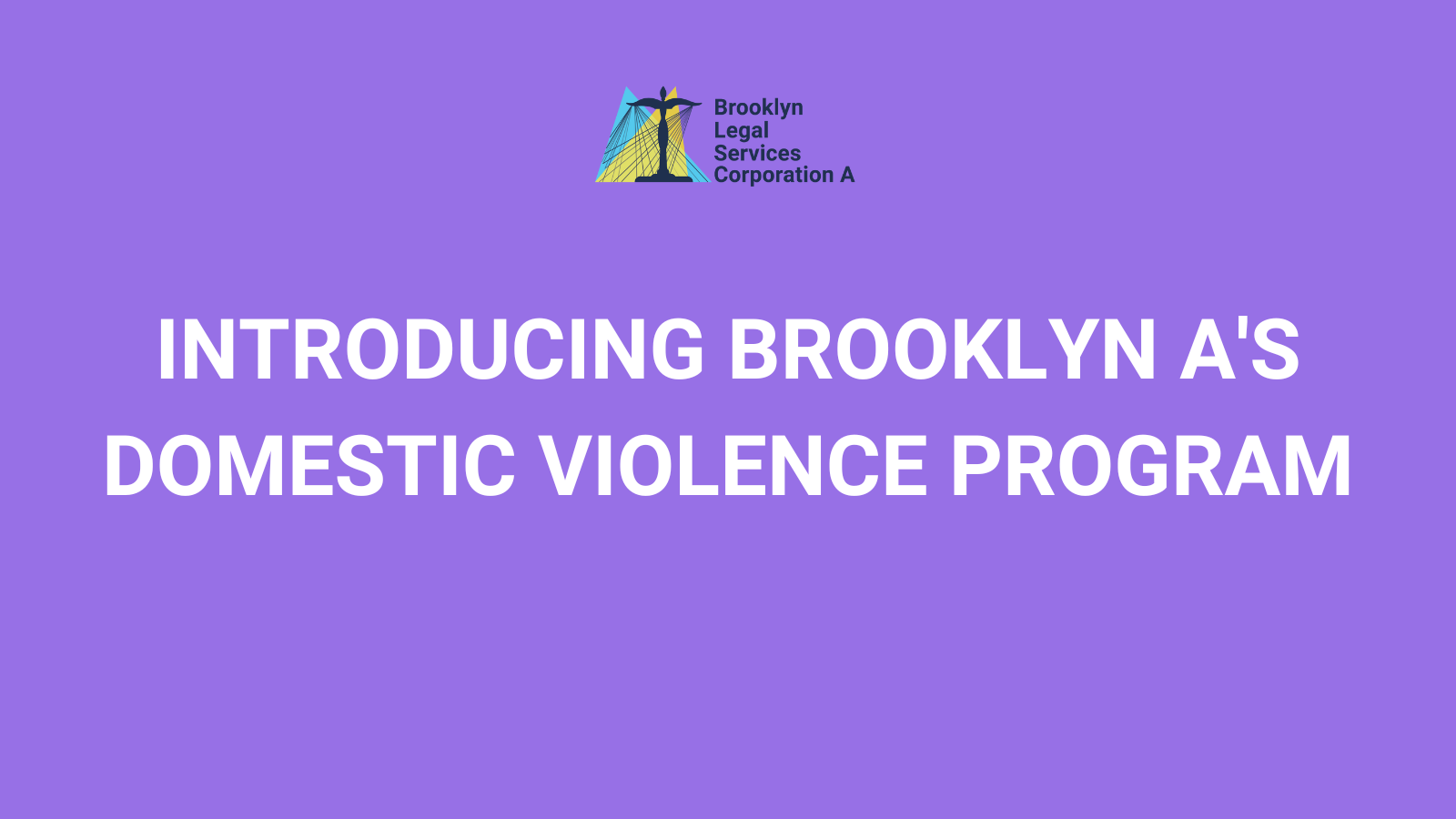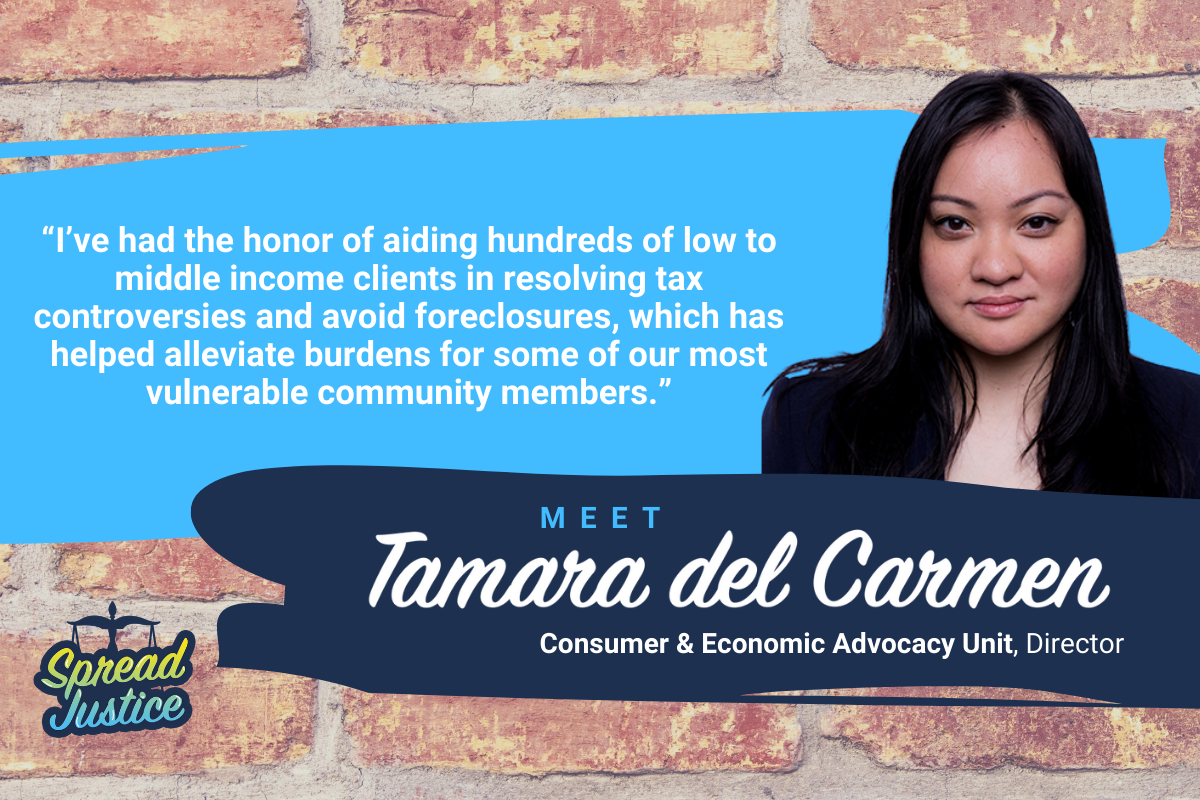
Introducing Brooklyn A’s Domestic Violence Program
Brooklyn A is very excited to have started our new Domestic Violence Program. We have always striven to meet the needs of New Yorkers, and this program will help address an ever-present issue in our city. According to statistics from the National Coalition Against Domestic Violence, around 30 percent of New Yorkers will experience physical violence, sexual violence or stalking from an intimate partner in their lifetimes. Additionally, in 2018, domestic violence survivors accounted for 41 percent of the families entering the homeless shelter system—making it the single largest cause of homelessness for people entering shelters.
We at Brooklyn A are encouraged to see the city take a growing interest in addressing domestic violence and we’re proud to be part of expanding resources for survivors in NYC. Two bills passed in the city council and signed by Mayor Eric Adams late last year improved access to necessary services for survivors: 153-A establishes a low-barrier grant available to survivors to help maintain their housing; 154-A directs the city to create an online portal to connect survivors to resources. Brooklyn A will help clients gain access to all available resources and will continue to champion city policies that directly help survivors.
To help introduce Brooklyn A’s Domestic Violence Program, we’ve answered some frequent questions about our work and the services that we offer. If you have additional questions or are seeking assistance with a domestic violence issue, contact Brooklyn A at (718) 487-2300 or [email protected]. For additional DV services, call the NYC Domestic and Gender-Based Violence Support hotline at 800-621-4673.
What is domestic violence?
Domestic violence is a type of gender-based violence. It is usually rooted in a form of gender privilege, mainly male privilege. This is not the sole cause of domestic violence, but it is often the underlying basis in an abusive relationship and follows an assaultive, coercive pattern used to exert and maintain control over an intimate partner. The terms “family violence” or “intimate partner violence” are often used to describe different types of abuse, such as child abuse, but Brooklyn A uses “domestic violence” as an umbrella term applied to all such cases.
Who experiences domestic violence?
Domestic violence is very common. In the United States, more than one third of women have experienced domestic violence in their lifetimes—and experienced service providers in the field will often report that the number is much higher. One in four women has experienced severe physical violence by an intimate partner in her lifetime. While men, nonbinary and otherwise gender-identifying people do experience it at troubling rates as well, women make up the vast majority of domestic violence victims. At least 2,000 women in the U.S. die each year from domestic violence—most alarmingly, about half of the femicides in the U.S. are victims of domestic violence, and Black, Latina, immigrant and trans women are at least twice as likely to be murdered.
What kinds of legal services does Brooklyn A provide?
Much of our work is in family court, helping to obtain orders of protection, child custody, and child and spousal support. We also represent and advise clients in immigration cases related to domestic violence. Brooklyn A also provides criminal court accompaniment, options counseling to help victims decide next steps, safety planning to help victims avoid further abuse and related case management.
Our program also represents protective parents in cases of child abuse—typically against the other parent—and those cases usually involve protection and custody orders. We also represent parents protecting teens against dating violence, also typically protection order cases. Finally, we represent college students in cases of campus assault by romantic partners.
What are the benefits of an organization like Brooklyn A having Domestic Violence specialists in-house?
Our program comes in the wake of a noticeable increase in self-identified domestic violence survivors among our clients during the pandemic. Data have shown that the pandemic lockdowns created an increase in rates of domestic violence in the U.S. and the increased lack of affordable housing in New York City has added additional risk factors for victims. We will also provide training and outreach to partner organizations to help equip other service providers to better address domestic violence in their work.


